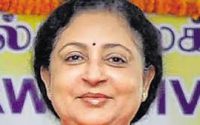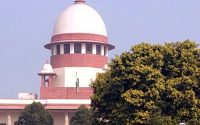$100 Website Offer
Get your personal website + domain for just $100.
Limited Time Offer!
Claim Your Website NowMadras High Court Judge Does Self-appraisal, Asks Bar for Ideas to Improve
Source: news18.com
Chennai: In a candid declaration, a Madras High Court judge has sent to the Bar a self-appraisal of his two-year tenure, reflecting on disposal of cases, his judgments, behaviour, and vowing to evolve a mechanism to overcome his shortcomings.
Justice GR Swaminathan, who assumed office on June 28, 2017, said in his report card that he has disposed of 18,944 cases individually and 2,534 cases as part of division benches.
Citing reserved and non-disposed matters, he said he had reserved a number of matters and found it difficult to prepare orders without the benefit of re-hearing.
“But then, I am not supposed to retain the bundles once the cycle is over. Therefore, with heavy heart I am releasing almost 75 cases from my board…
“I, with folded hands convey my apologies to the counsel and to the concerned litigants for not giving disposal to those cases,” he told members of the Bar.
The judge also conveyed his apologies to the counsel and litigants for not disposing such cases.
“Henceforth, I shall dictate all the judgments in the open court. This, I think will avoid the situation that I am now facing.”
Quite candidly, the judge in his appraisal, said he introspected and admitted he has been impatient and sometimes even rude. “I hope to put on better behaviour henceforth,” he said.
Describing his orders as “too cryptic,” he requested the Bar to appreciate that since pendency was heavy, he was more concerned on disposals and could not afford to write long orders.
But essential facts ought to be stated and there was no excuse for skipping them, he pointed out.
On the delay in order copies he said: “Since I find it very difficult to correct the draft orders, there has been undue delay in dispatching the order copies.
I hope to evolve a mechanism to overcome the shortcomings. When I enter the third year from tomorrow, I do hope to turn a new leaf.”
Justice Swaminathan also listed four cases, including one which protected cartoonists from criminal defamation, and a judgment which upheld the validity of a marriage between a man and a transwoman as those that attracted widespread attention and notice.
A case which established the privacy rights of prisoners, enabling conversation by jail inmates with their spouses without being monitored by officials and another that upheld the right of Sri Lankan refugees to apply for Indian citizenship were the two other cases.
“Friends, I have great expectations from you…how can you assist me more is a question that I want you to pose to yourself,” he told the Bar.
“I believe I can write a good judgment only if your advocacy is good. Bad advocacy will breed only bad judgment. I am critically dependent on you,” he said.
Inviting their suggestions to serve the institution and the cause of justice better, he requested them to put it in writing and pass it on to the court officer.
“I can touch my conscience and tell you that I have been very happy with the way each and every one of you you have conducted yourselves before me. My pranams to one and all.”
The judge also told the advocates to get ready with their respective cases with instructions from their clients once his roster was announced by the Chief Justice and not wait for the case to be listed.
“You can prepare proper synopsis with dates and events and relevant citations and pass on to the court officer a day in advance. You should not take more than one adjournment,” he said.



